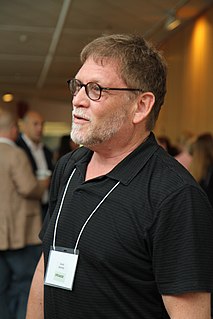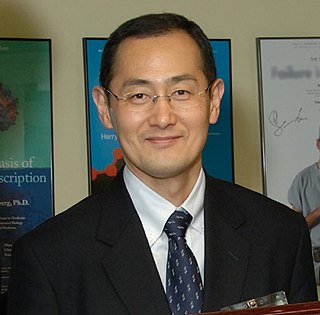A Quote by Carl Sagan
And you are made of a hundred trillion cells. We are, each of us, a multitude.
Related Quotes
With its hundred billion nerve cells, with their hundred trillion interconnections, the human brain is the most complex phenomenon in the known universe - always, of course, excepting the interaction of some six billion such brains and their owners within the socio-technological culture of our planetary ecosystem!
We have 200 trillion cells, and the outcome of each of them is almost 100 percent genetically determined. And that's what our experiment with the first synthetic genome proves, at least in the case of really simple bacteria. It's the interactions of all those separate genetic units that give us the physiology that we see.
Molecular biology has shown that even the simplest of all living systems on the earth today, bacterial cells, are exceedingly complex objects. Although the tiniest bacterial cells are incredibly small, weighing less than 10-12 gms, each is in effect a veritable micro-miniaturized factory containing thousands of exquisitely designed pieces of intricate molecular machinery, made up altogether of one hundred thousand million atoms, far more complicated than any machine built by man and absolutely without parallel in the nonliving world.
The technology involved in making anything invisible is so infinitely complex that nine hundred and ninety-nine billion, nine hundred and ninety-nine million, nine hundred and ninety-nine thousand, nine hundred and ninety-nine times out of a trillion it is much simpler and more effective just to take the thing away and do without it.


































